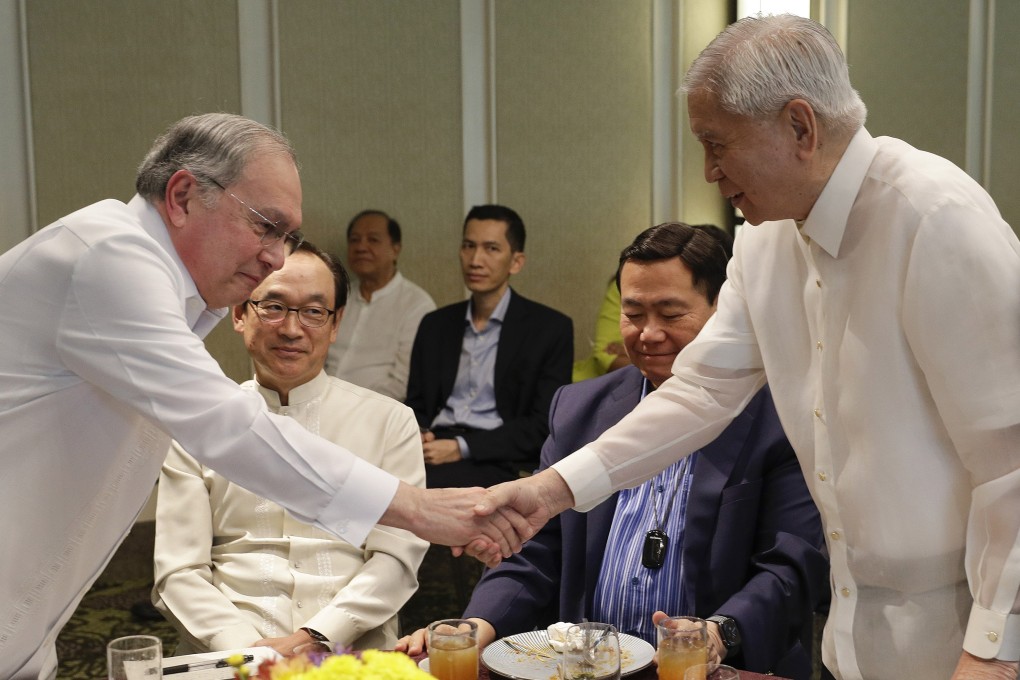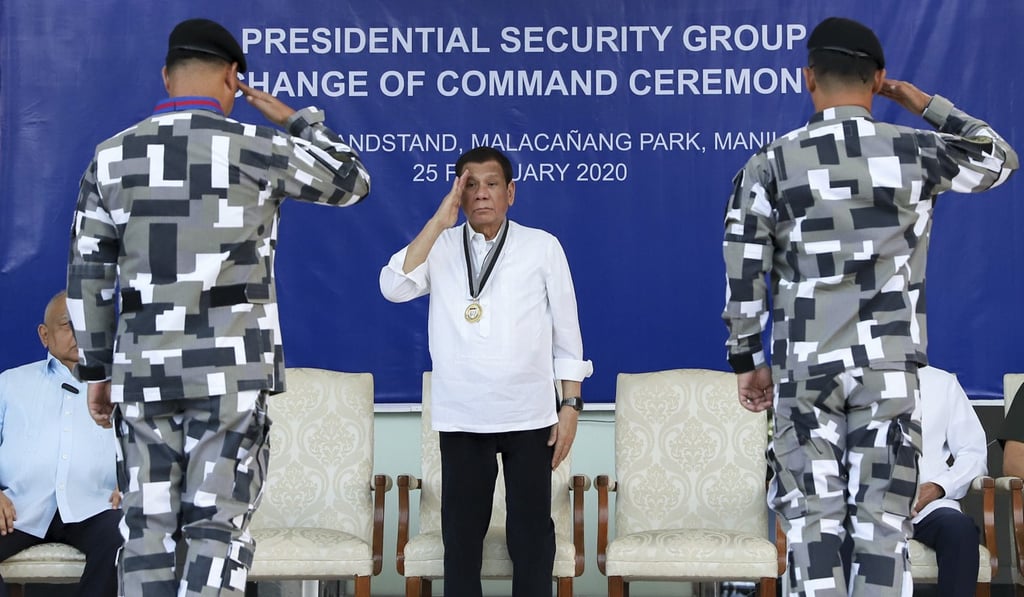Door not shut for saving US-Philippines defence pact – envoy says
- The Philippine ambassador to Washington said both countries were looking at how they can ‘improve’ the troop pact
- President Duterte caused a stir earlier this month by serving notice of the VFA’s termination

A US-Philippines troop agreement recently scrapped by President Rodrigo Duterte could still be salvaged, a senior diplomat said on Friday, boosting hopes in both countries of retaining one of Asia’s oldest military alliances.
Talks were taking place to find a solution, but the alliance would prevail, recognising the importance of the United States as a global power, said Jose Manuel Romualdez, Philippine ambassador to Washington.
“From what I’m told, the door is not totally shut,” he told a forum.
Romualdez said both countries were looking at how they can “polish” and “improve” the Visiting Forces Agreement (VFA), with a Philippines troop pact with Australia and a similar agreement in the works with Japan possible templates.
The mercurial Duterte caused a stir earlier this month by serving notice of the VFA’s termination, showing his fury over the rescinding of a US travel visa for his former police chief due to human rights concerns by some US lawmakers.

The VFA, which would end in August, provides rules for the rotation of thousands of American troops in and out of the Philippines for war games and scores of annual exercises.